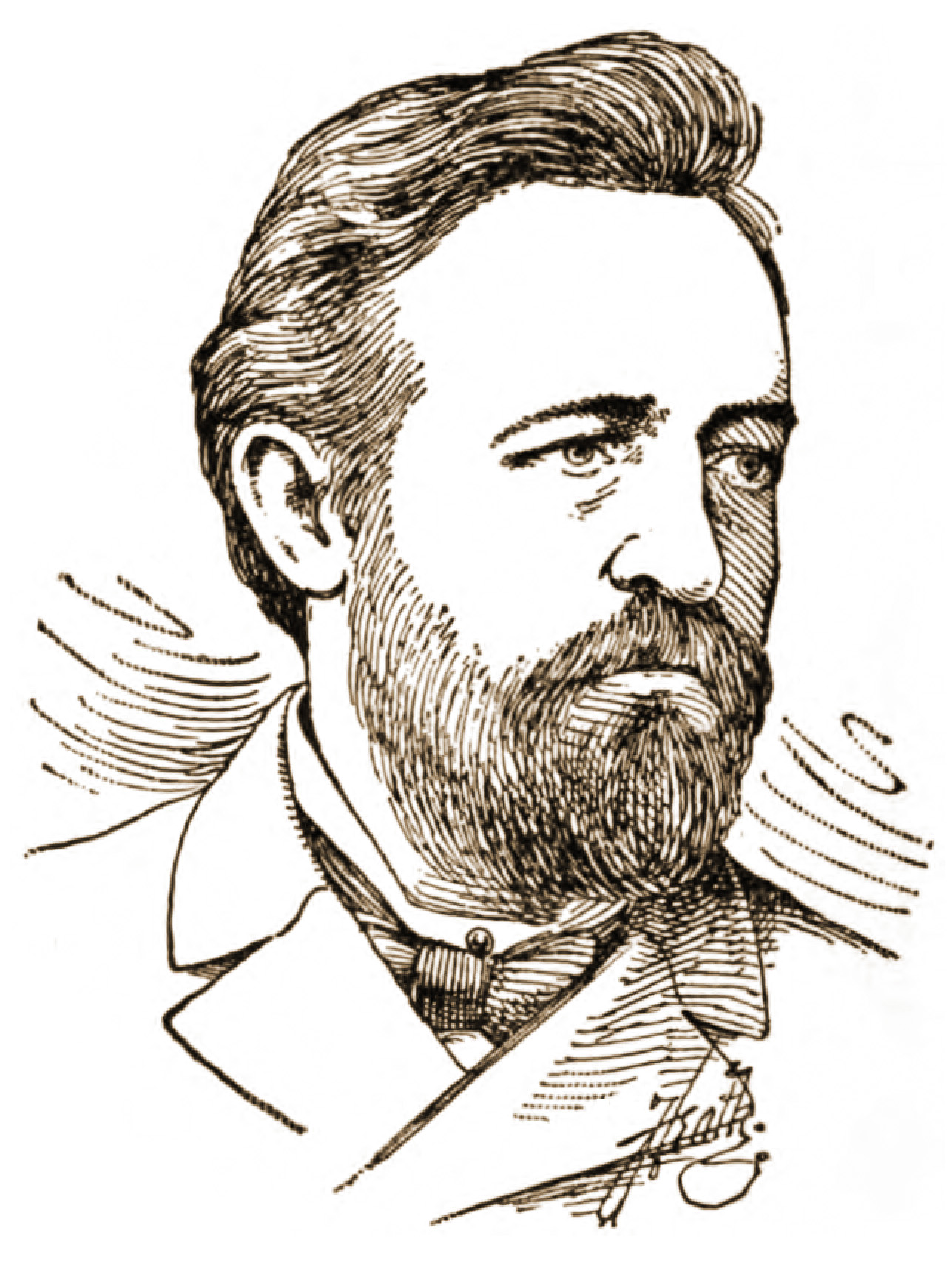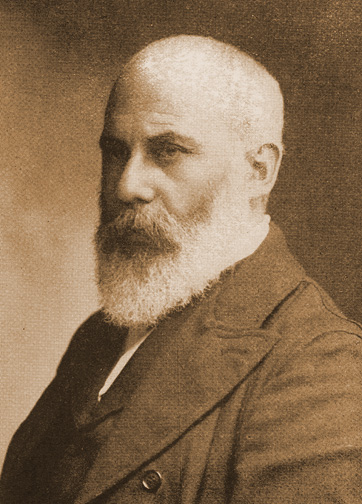|
Paul Grottkau
Paul Grottkau (1846–1898) was a German-American socialist political activist and newspaper publisher. Grottkau is best remembered as an editor alongside Haymarket affair victim August Spies of the ''Chicagoer Arbeiter-Zeitung,'' one of the leading American radical newspapers of the decade of the 1880s. Later moving to Milwaukee, Grottkau became one of the leading luminaries of the socialist movement in Wisconsin. Biography Early years Paul Grottkau was born in Cottbus in 1846 and raised in Berlin, Prussia (now part of Germany), the son of a relatively prosperous noble family.Harmut Keil, "The German Immigrant Working Class of Chicago, 1875-90: Workers, Labor Leaders, and the Labor Movement," in Dirk Hoerder (ed.), ''American Labor and Immigration History, 1877-1920s: Recent European Research.'' Urbana: University of Illinois Press, 1983; pg. 165. Grottkau was trained as an architect. [...More Info...] [...Related Items...] OR: [Wikipedia] [Google] [Baidu] |
Anti-Socialist Laws
The Anti-Socialist Laws or Socialist Laws (german: Sozialistengesetze; officially , approximately "Law against the public danger of Social Democratic endeavours") were a series of acts of the parliament of the German Empire, the first of which was passed on 19 October 1878 by the Reichstag lasting until 31 March 1881 and extended four times (May 1880, May 1884, April 1886 and February 1888). The legislation gained widespread support after two failed attempts to assassinate Kaiser Wilhelm I of Germany by the radicals Max Hödel and Karl Nobiling. The laws were designed by Chancellor Otto von Bismarck with the goal of reversing the growing strength of the Social Democratic Party (SPD, named SAP at the time) which was blamed for inspiring the assassins. However, the laws caused the socialist movement to strengthen at times. This resulted in Bismarck dropping the laws and changing his coalition, eventually becoming an ally of his former enemies the Catholic Centre Party which appe ... [...More Info...] [...Related Items...] OR: [Wikipedia] [Google] [Baidu] |
Collectivism And Individualism
In sociology, a social organization is a pattern of relationships between and among individuals and social groups. Characteristics of social organization can include qualities such as sexual composition, spatiotemporal cohesion, leadership, structure, division of labor, communication systems, and so on. And because of these characteristics of social organization, people can monitor their everyday work and involvement in other activities that are controlled forms of human interaction. These interactions include: affiliation, collective resources, substitutability of individuals and recorded control. These interactions come together to constitute common features in basic social units such as family, enterprises, clubs, states, etc. These are social organizations. Common examples of modern social organizations are government agencies, NGO's and corporations. Elements Social organizations happen in everyday life. Many people belong to various social structures—institution ... [...More Info...] [...Related Items...] OR: [Wikipedia] [Google] [Baidu] |
1883 Pittsburgh Convention
Events January–March * January 4 – ''Life'' magazine is founded in Los Angeles, California, United States. * January 10 – A fire at the Newhall Hotel in Milwaukee, Wisconsin, United States, kills 73 people. * January 16 – The Pendleton Civil Service Reform Act, establishing the United States civil service, is passed. * January 19 – The first electric lighting system employing overhead wires begins service in Roselle, New Jersey, United States, installed by Thomas Edison. * February – ''The Adventures of Pinocchio'' by Carlo Collodi is first published complete in book form, in Italy. * February 15 – Tokyo Electrical Lightning Grid, predecessor of Tokyo Electrical Power (TEPCO), one of the largest electrical grids in Asia and the world, is founded in Japan. * February 16 – The ''Ladies' Home Journal'' is published for the first time, in the United States. * February 23 – Alabama becomes the first U.S. state to en ... [...More Info...] [...Related Items...] OR: [Wikipedia] [Google] [Baidu] |
Philip Van Patten
Simon Philip Van Patten (1852–1918) was an American socialist political activist prominent during the latter half of the 1870s and the first half of the 1880s. Van Patten is best remembered for being named the first Corresponding Secretary of the Workingmen's Party of the United States in 1876 and for heading it and its successor organization, the Socialist Labor Party of America, for the next six years. In 1883 Van Patten mysteriously disappeared, with his friends reporting him as a potential suicide to law enforcement authorities. He later turned up as a government employee, however, having abandoned radical politics in favor of stable employment. Biography Early years Simon Philip Van Patten was born February 22, 1852 in Georgetown, Washington, D.C., in the United States,Jerry W. Wilson"Simon Philip Van Patten,"Rootsweb at Ancestry.com/ the son of ethnic Dutch heritage. [...More Info...] [...Related Items...] OR: [Wikipedia] [Google] [Baidu] |
Lehr Und Wehr Verein
The ''Lehr und Wehr Verein'' ("Educational and Defense Society") was a socialist military organization founded in 1875, in Chicago, Illinois. The group had been formed to counter the armed private armies of companies in Chicago. The ''Lehr und Wehr Verein'' (LWV) was registered with the Illinois state authorities on April 19, 1875, with about 30 Bohemian and German members. The LWV trained and drilled in anticipation of an envisaged confrontation between Capital and Labor. In 1879 the State Legislature passed an act establishing a state militia and obliging all other militias to obtain a license from the Governor. That December, the LWV paraded 40 strong, armed with rifles. They were headed by Herman Presser, a socialist worker armed with a saber. Presser was arrested, as the organization had no license. Lawyers for the LWV argued that the new law breached the Second Amendment to the United States Constitution. '' Presser v. Illinois'' became a test case which proceeded throu ... [...More Info...] [...Related Items...] OR: [Wikipedia] [Google] [Baidu] |
Paramilitary
A paramilitary is an organization whose structure, tactics, training, subculture, and (often) function are similar to those of a professional military, but is not part of a country's official or legitimate armed forces. Paramilitary units carry out duties that a country's military or police forces are unable or unwilling to handle. Other organizations may be considered paramilitaries by structure alone, despite being unarmed or lacking a combat role. Overview Though a paramilitary is, by definition, not a military, it is usually equivalent to a light infantry force in terms of strength, firepower, and organizational structure. Paramilitaries use "military" equipment (such as long guns and armored personnel carriers; usually military surplus resources), skills (such as battlefield medicine and bomb disposal), and tactics (such as urban warfare and close-quarters combat) that are compatible with their purpose, often combining them with skills from other relevant fields suc ... [...More Info...] [...Related Items...] OR: [Wikipedia] [Google] [Baidu] |
Anarchism
Anarchism is a political philosophy and movement that is skeptical of all justifications for authority and seeks to abolish the institutions it claims maintain unnecessary coercion and hierarchy, typically including, though not necessarily limited to, governments, nation states, and capitalism. Anarchism advocates for the replacement of the state with stateless societies or other forms of free associations. As a historically left-wing movement, usually placed on the farthest left of the political spectrum, it is usually described alongside communalism and libertarian Marxism as the libertarian wing ( libertarian socialism) of the socialist movement. Humans lived in societies without formal hierarchies long before the establishment of formal states, realms, or empires. With the rise of organised hierarchical bodies, scepticism toward authority also rose. Although traces of anarchist thought are found throughout history, modern anarchism emerged from the Enlig ... [...More Info...] [...Related Items...] OR: [Wikipedia] [Google] [Baidu] |
Armed Insurrection
Rebellion, uprising, or insurrection is a refusal of obedience or order. It refers to the open resistance against the orders of an established authority. A rebellion originates from a sentiment of indignation and disapproval of a situation and then manifests itself by the refusal to submit or to obey the authority responsible for this situation. Rebellion can be individual or collective, peaceful (civil disobedience, civil resistance, and nonviolent resistance) or violent (terrorism, sabotage and guerrilla warfare). In political terms, rebellion and revolt are often distinguished by their different aims. While rebellion generally seeks to evade and/or gain concessions from an oppressive power, a revolt seeks to overthrow and destroy that power, as well as its accompanying laws. The goal of rebellion is resistance while a revolt seeks a revolution. As power shifts relative to the external adversary, or power shifts within a mixed coalition, or positions harden or soften on e ... [...More Info...] [...Related Items...] OR: [Wikipedia] [Google] [Baidu] |
Socialist Labor Party Of America
The Socialist Labor Party (SLP)"The name of this organization shall be Socialist Labor Party". Art. I, Sec. 1 of thadopted at the Eleventh National Convention (New York, July 1904; amended at the National Conventions 1908, 1912, 1916, 1920, 1924, 1928, 1932, 1936, 1940, 1944, 1948, 1952, 1956, 1960, 1964, 1968, 1972, 1976, 1977, 1978, 1979, 1980, 1981, 1982, 1983, 1984, 1987, 1989, 1991, 1993, 2001, 2005 and 2007) (cited February 18, 2016). is the first socialist political party in the United States, established in 1876. Originally known as the Workingmen's Party of the United States, the party changed its name in 1877 to Socialistic Labor Party [...More Info...] [...Related Items...] OR: [Wikipedia] [Google] [Baidu] |
Albert Parsons
Albert Richard Parsons (June 20, 1848 – November 11, 1887) was a pioneering American socialist and later anarchist newspaper editor, orator, and labor activist. As a teenager, he served in the military force of the Confederate States of America in Texas, during the American Civil War. After the war, he settled in Texas, and became an activist for the rights of former slaves, and later a Republican official during Reconstruction. With his wife Lucy Parsons, he then moved to Chicago in 1873 and worked in newspapers. There he became interested in the rights of workers. In 1884, he began editing ''The Alarm'' newspaper. Parsons was one of four Chicago radical leaders controversially convicted of conspiracy and hanged following a bomb attack on police remembered as the Haymarket affair. Early years Albert Parsons was born June 20, 1848, in Montgomery, Alabama, one of the ten children of the proprietor of a shoe and leather factory who had originally hailed from Maine.Albert R. Pars ... [...More Info...] [...Related Items...] OR: [Wikipedia] [Google] [Baidu] |
August Spies Portrait
August is the eighth month of the year in the Julian and Gregorian calendars, and the fifth of seven months to have a length of 31 days. Its zodiac sign is Leo and was originally named '' Sextilis'' in Latin because it was the 6th month in the original ten-month Roman calendar under Romulus in 753 BC, with March being the first month of the year. About 700 BC, it became the eighth month when January and February were added to the year before March by King Numa Pompilius, who also gave it 29 days. Julius Caesar added two days when he created the Julian calendar in 46 BC (708 AUC), giving it its modern length of 31 days. In 8 BC, it was renamed in honor of Emperor Augustus. According to a Senatus consultum quoted by Macrobius, he chose this month because it was the time of several of his great triumphs, including the conquest of Egypt. Commonly repeated lore has it that August has 31 days because Augustus wanted his month to match the length of Julius Caesar's July, but ... [...More Info...] [...Related Items...] OR: [Wikipedia] [Google] [Baidu] |









